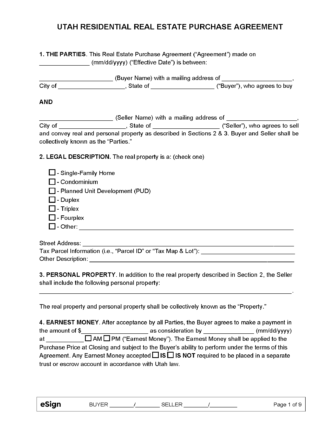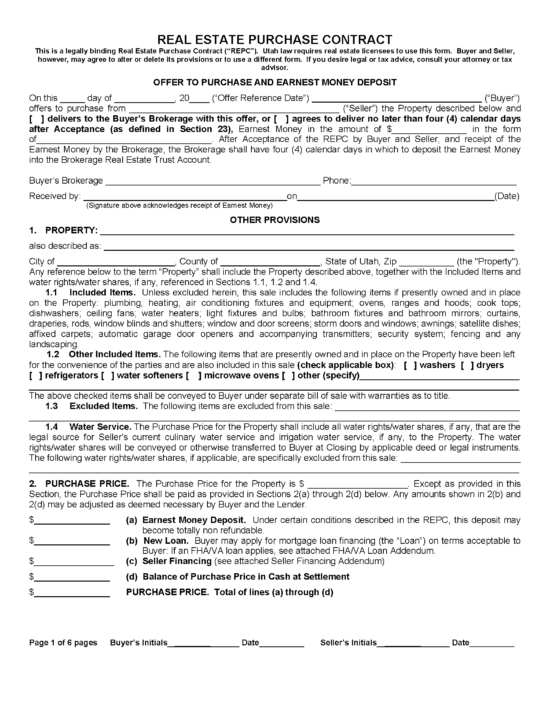

The Utah residential purchase and sale agreement is a legally binding document that relays the terms of a residential property transaction between two (2) parties. The completed form will include the purchase price, earnest money deposit, closing date, and closing costs, as well as any financing and insurance on which the deal is contingent.
The buyer and seller can negotiate the details of their arrangement and amend the document until they agree on each term. Once both parties have executed the purchase contract, it becomes effective and legally binding. Because Utah is a “buyer beware” state, it is recommended that the buyer has the property professionally inspected for material defects prior to signing an agreement.

Real Estate Purchase Contract (REPC) – Provided by the Utah Real Estate Commission, this is the standard residential purchase contract designed for professional realtors.
If the property was built before 1978, the seller must disclose the presence of lead paint on the premises the buyer give them a copy of the EPA information booklet.
2) Methamphetamine Contamination
If an owner or lessor has actual knowledge that their property has methamphetamine contamination, the information must be disclosed in the lease.
Discloses any known defects in the property being sold. Technically, the seller isn’t required to provide this disclosure. However, the seller’s listing agent is required to provide a property disclosure statement. This form is provided by the Utah Association of Realtors to be used only by licensed members.
Utah is a caveat emptor state, which means that the seller of residential property is not liable for defects in the property found following the sale. However, the Supreme Court has ruled that the seller must disclose material defects that are undiscoverable from a standard inspection (Mitchell v. Christensen, 2001 UT 80). Therefore, the buyer should have a professional inspection of the premises completed prior to purchase to avoid liability. If the property is contaminated due to previous storage, manufacturing, or use of methamphetamine on the premises, the seller must disclose this information to the buyer before executing an agreement (§ 57-27-201).